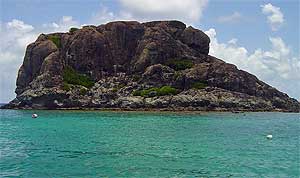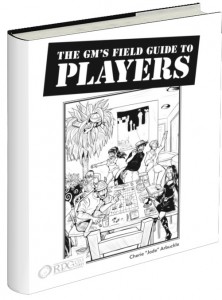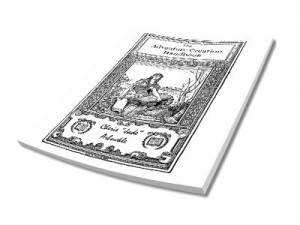 If you were stranded on a desert island, what five RPG games would you want with you?
If you were stranded on a desert island, what five RPG games would you want with you?
The RPG Circus podcast posed this question at the beginning of December and it got me thinking. For the purposes of the question, it was assumed you would be able to choose the systems you were stranded with and that you could have all the dice, supplements, paper, pencils, etc. that you needed. It also assumes that there would be other people stranded with you, so you’d have players.
Here’s my list of five:
- Classic World of Darkness – Yeah, okay, I’m kind of cheating with this one, since it’s actually five separate games. But I love this setting and I’ve had many happy hours playing it. If I absolutely had to pick only one of this games, it would be Mage: the Ascension.
- D&D – No brainer, right? The grandaddy of all RPGs. The only real problem here would be if I had to choose an edition. I’d either want 1st ed AD&D or 3rd ed (d20). Each has their strengths and weaknesses, but if I had to choose, I guess I’d go with 3rd ed., since I find it a more flexible system. But I’ve also got a soft spot for 1st ed, since it got me started in gaming.
- Savage Worlds – I wanted a generic system in this list and I love Savage World’s innovative dice system (combined with playing cards) as well as the “wild die.”
- Traveller (4th edition, also called “Marc Miller’s Traveller”) – Yes, this edition had issues with editing, but it was the first version of the game that made me go “Oooh, I want to play that,” despite the fact that I also have a good chunk of the original “Black Box” books. I love the campaign setting and reading it gave me more campaign ideas than I could possibly use in a lifetime. I also prefer it to the “Black Box” edition partially because computers no longer take up a huge amount of your ship’s capacity and you can’t die during character creation. I’ve never gotten a chance to play in a Traveller campaign, but it’s on my bucket list of games.
- Skyrealms of Jorune – I’ve only gotten a taste of this game in a campaign that lasted about three sessions, but I would love to play more in this unique setting. I figure if I’m stuck on a deserted island, I’d have the time to sit down and really learn the game setting as well as being able to convince other people to play it.
It was hard to choose just five. I figure I’d also have Amber, because I already have everything I need to run it in my head. But I’d have loved to include Everway, Cyberpunk 2020, Trinity, Shadowrun and In Nomine, as well.
What about you? What five game would you want with you if you were stranded on an island and why?
[Image courtesy of steve conry via Flickr Creative Commons.]
Related articles
- The 7 RPGs You’ve GMed the Most, and the 7 RPGs You’ve Played the Most (gnomestew.com)
- A Tale of Two Types (gnomestew.com)
- Season 4 Episode 24 – The Professor, Mary Ann, and RPGs (rpgcircus.com)
- Nostalgia: Skyrealms of Jorune (armchairgamer.blogspot.com)












